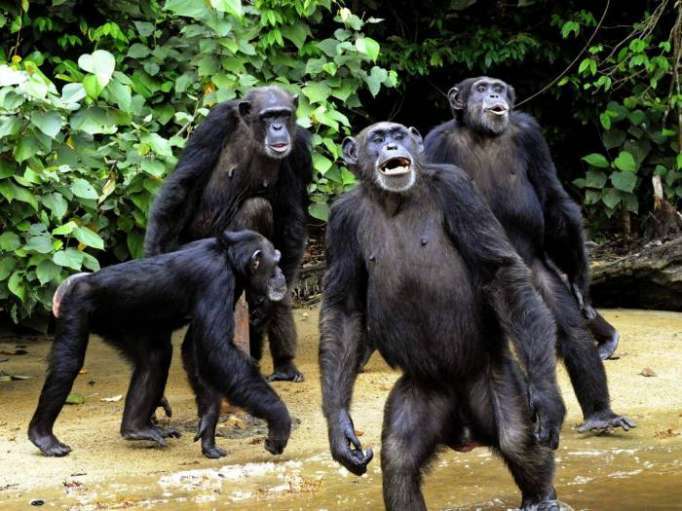A study comparing swabs taken from chimp nests with those from human beds found that people's sheets and mattresses harboured far more bacteria from their bodies than the animals' beds did from theirs.
The researchers say their findings suggest that our attempts to create clean environments for ourselves may actually make our surroundings “less ideal”.
More than a third – 35 per cent - of the bacteria in human beds comes from our own saliva, skin and faecal particles.
By contrast, chimps - humans’ closest evolutionary relatives - appear to sleep with few such bacteria.
“We found almost none of those microbes in the chimpanzee nests, which was a little surprising," said Megan Thoemmes, lead author of the paper.
The researchers collected samples from 41 chimpanzee beds - or nests - in Tanzania and tested them for microbial biodiversity.
At 15 primates’ nests, researchers also used vacuums to find out whether there were arthropods, such as insects, spiders, mites and ticks.
"We also expected to see a significant number of arthropod parasites, but we didn't," said Ms Thoemmes.
In addition, the team were shocked to find very few fleas, lice and bed bugs – ectoparasites – in the chimp nests.
"There were only four ectoparasites found, across all the nests we looked at. And that's four individual specimens, not four different species,” said Ms Thoemmes, a PhD student at North Carolina State University.
She believes chimps’ beds are cleaner because they make them freshly in treetops each day.
Although they sleep surrounded by fewer bodily bacteria, chimps had a more diverse range of other natural bacteria from their leafy surroundings, the research found.
Ms Thoemmes said she believes human's susceptibility to autoimmune diseases and allergies could be linked to these differences.
"We know that human homes are effectively their own ecosystems, and human beds often contain a subset of the taxa - or types - of organisms found in the home," she said.
"This work really highlights the role that man-made structures play in shaping the ecosystems of our immediate environment. In some ways, our attempts to create a clean environment for ourselves may actually make our surroundings less ideal."
The study said: “To put it simply, we have created sleeping places in which our exposure to soil and other environmental microbes has all but disappeared, and we are instead surrounded by less diverse microbes that are primarily sourced from our own bodies.
“Chimpanzee beds contained no arthropod specimens specialised on life with chimpanzees. In contrast, the arthropod communities in human homes are diverse, often including hundreds of species, tens of which are specialised on life indoors.”
More about: Chimpanzees
















































